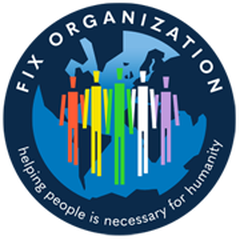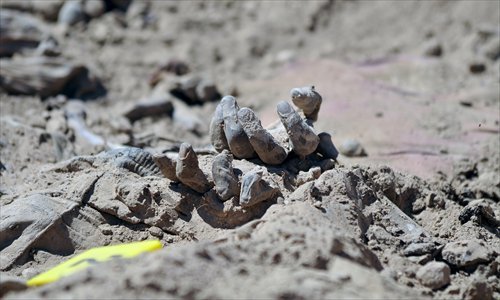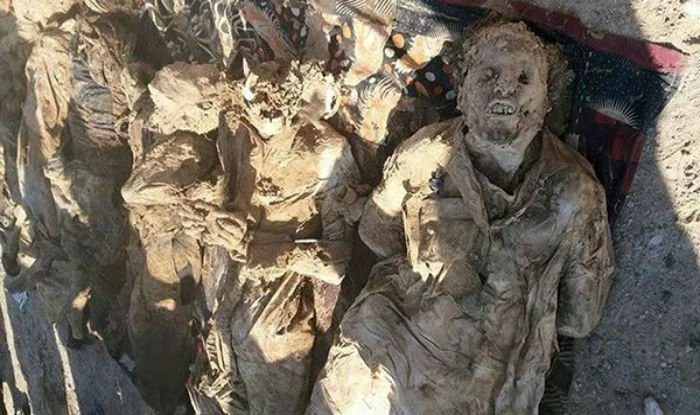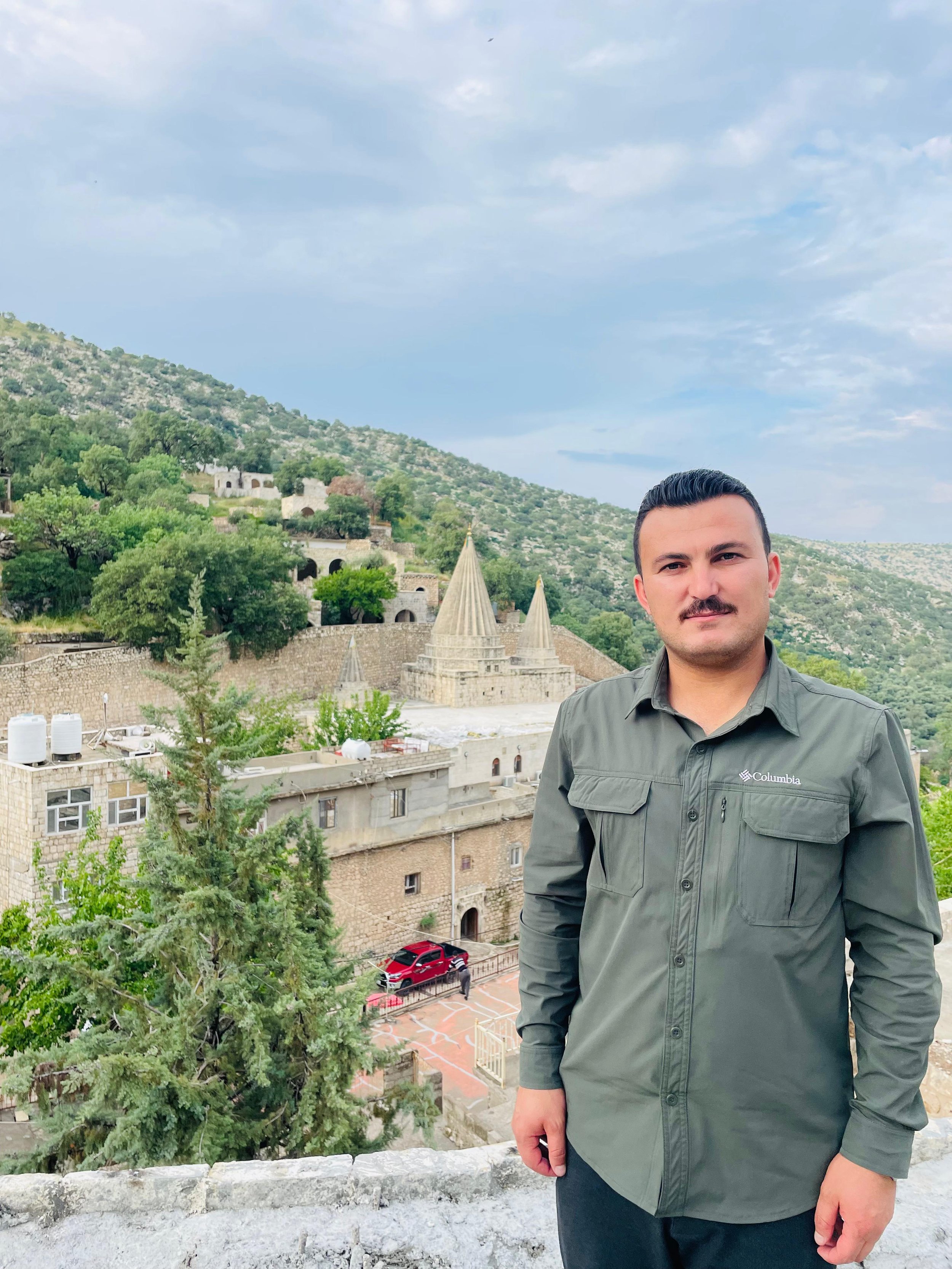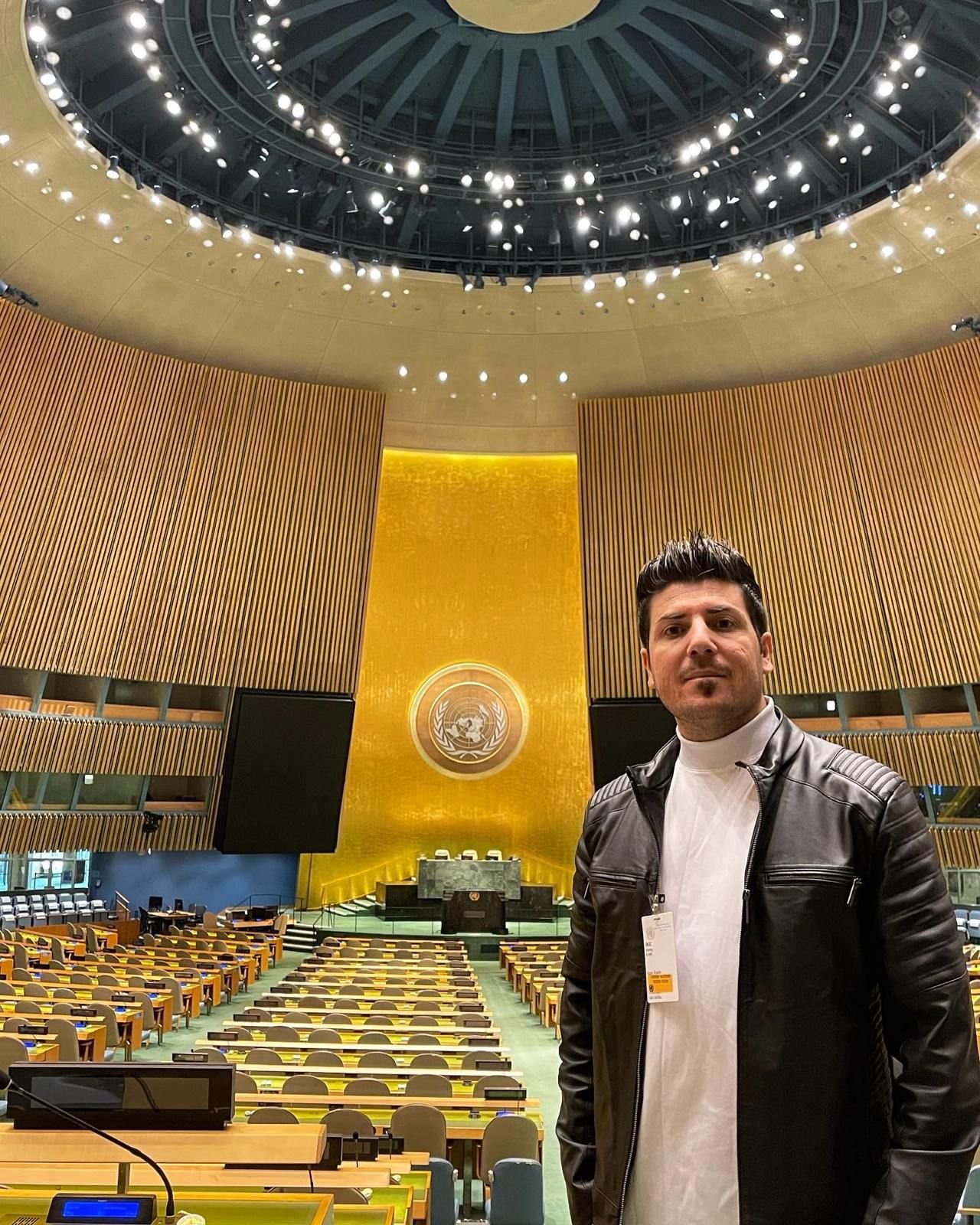VIOLENCE AGAINST THE YAZIDI COMMUNITY: ISIS CRIMES AGAINST THE YAZIDI AND THEIR SUFFERING UNDER ISLAMIC STATE
Author(s): Tyler Fisher, Nahro Zagros, Muslih Mustafa, Brooke E. Hamilton, Busra Nisa Sarac, Dave van Zoonen and Khogir Wirya, and UN Human Rights Council Thirty-second session Agenda item 4
Yazidis are one of the oldest ethnic and religious communities indigenous to the Middle East. The majority of Yazidis live in the north-west of Iraq, in areas surrounding Shingal Mountain and Shekhan district. Additionally, there are some Yazidi villages and towns in Talkeef and Bashiqa District, and in Duhok Governorate in the Kurdistan Region of Iraq (KRI). Although there is a dearth of reliable statistics on demography, community estimates state there are about 550,000 – 600,000 Yazidis in Iraq. Yazidis are considered the second-largest religious minority in Iraq, after the Christians.
The Yazidi community has been the victim of many violent attacks and prosecutions throughout history. Organised violence against the Yazidi community can be traced back as far as the Ottoman Empire, when Yazidis were targeted by campaigns of forced conversion and religious violence. Yazidis often claim their community has gone through at least 72 attempts at annihilation – i.e. genocides. Whether this number is historically accurate is hard to determine. Nevertheless, being victims of prosecution and genocide is an important component of the shared Yazidi identity and community narrative.
Later on, as Kurdish speakers, Saddam’s Arabisation campaign did not spare the Yazidis either. During the 1970’s, it was Ba’athist policy to force Yazidis out of their villages and into newly constructed ‘collective towns’ such as Shingal, severely disrupting their traditionally pastoral way of life.
After the US-led coalition toppled Saddam in 2003 sectarian violence quickly escalated to involve fundamentalist attacks on all minority communities. Yazidi villages, shrines and holidays were all repeatedly targeted. One of the worst attacks occurred on August 14th 2007, when terrorists inflicted a devastating and
coordinated attack detonating four truck-bombs simultaneously in the villages of Kataniya and Jazira. It is estimated that over 500 people lost their lives in the attack, and another 1,500 were wounded. Although no perpetrators were arrested or indicted, it is presumed that Al-Qaeda in Iraq (AQ-I) was behind the bombings.
ISIS has committed the crime of genocide as well as multiple crimes against humanity and war crimes against the Yazidis.ISIS has sought to destroy the Yazidis through killings; sexual slavery,enslavement, torture and inhuman and degrading treatment and forcible transfer causing serious bodily and mental harm; the infliction of conditions of life that bring about a slow death; the imposition of measures to prevent Yazidi children from being born, including forced conversion of adults, the separation of Yazidi men and women, and mental trauma; and the transfer of Yazidi children from their own families and placing them with ISIS fighters, thereby cutting them off from beliefs and practices of their own religious community, and erasing their identity as Yazidis. The public statements and conduct of ISIS and its fighters clearly demonstrate that ISIS intended to destroy the Yazidis of Sinjar, composing the majority of the world’s Yazidi population, in whole or in part.
The Yezidis’ recent past has been fraught with violent persecution, culminating in the attacks by Islamic State (IS) that drove tens of thousands to the mountains of Sinjar, in the northwestern corner of Iraq, in the late summer of 2014. After the fall of Mosul to IS, the aspiring caliphate aimed to expand and consolidate its control over the region by exterminating the thinly protected enclaves of Yezidis and other ethno-religious minorities on the Nineveh Plains. The assault on Sinjar displaced roughly 200,000 civilians and forced almost 50,000 Yezidis to flee to the mountains.
As ISIS set fire to Yezidi villages, obliterated their shrines with explosives, abducted women and children, and executed men who resisted conversion to Islam, the Yezidis who escaped to the mountains of Sinjar found themselves besieged by ISIS forces. The week-long siege was broken, if only temporarily, when Kurdish and Iraqi military forces, with support from US airstrikes and humanitarian airdrops, managed to usher most of the displaced Yezidis to the relative safety of camps in Iraqi Kurdistan or Kurdish areas of Syria and Turkey.
In the aftermath, amid mass graves and ongoing efforts to rescue the thousands of Yezidis still in captivity under ISIS, observers have struggled to take stock of the sheer scale of the atrocities: an estimated 3,200. Yazidi females continue to be sexually enslaved and Yazidi boys, indoctrinated, trained and used in hostilities. Thousands of Yazidi men and boys are missing.The genocide of the Yazidis is on-going.
Yezidis were massacred in the attacks of August 2014, while 6,800 more were taken captive, and as many as 400,000 were forced to abandon their homes numbers that might ultimately prove to be a conservative estimate. In short, the Yezidis have been the target of an ongoing genocide that the international community – including the UN, the European Parliament, the Council of Europe, the British Parliament and the United States Congress – finally, formally recognized as such.
The Yezidis survived as a peripheral minority in the upper reaches of Mesopotamia during centuries of the Ottoman Empire, the British Mandate, the Baathist era, the American occupation and withdrawal, and the ascendancy of IS. In northern Iraq, which has long been the centre of Yezidi devotion and the area where their population is most highly concentrated, the shifting political and military tides have been punctuated by recurring hostilities and devastation for their communities. Despite the Yezidis’ claims to monotheism, their reverence for angelic beings and the syncretic features of their religion have caused neighbours of other faiths to regard them as apostates or, worse, as devil-worshippers – legit- imate prey for persecution.
IS’s own propaganda in its slick English-language magazine, Dabiq, justifies the mass murder and enslavement of Yezidis on the grounds that they are ‘a pagan minority’, ‘mushrikīn’, whose ‘worship of Iblīs [that is, Satan]’ makes them fit only for forced conversion, ‘the sword’ or slav- ery; ‘the Yazidi women and children were then divided according to the Sharī’ah amongst the fighters of the Islamic State who participated in the Sinjar operations, after one fifth of the slaves were transferred to the Islamic State’s authority.
The protection of indigenous peoples is imperative for their continued existence.
When ISIS forces entered Mosul, they systematically destroyed all property belonging to Assyrian Christians, publishing videos of its members demolishing centuries old monuments on the internet.6 The militants desecrated Christian churches, and banned the display of all
Indeed, more than one hundred and twenty thousand Assyrian Christians have been forced out of their homes, leaving, for the first time in two thousand years, no Christians in Mosul.9
ISIS attacks have been strategic, wiping away any trace of Assyrian Christians from the land in which they have lived for thousands of years. The Assyrian Christians have “survived centuries of conquerors and massacres,”.
In early 2019, with the United States-backed forces’ announcement that they had driven ISIS out their final stronghold of Baghuz, this territorial victory served to raise international attention to the devastated lives of the Yazidi people who had been living within ISIS’ former territories. ISIS’s barbarity has targeted other smaller ethnic groups including both Sunni and non-Sunni, and Christians, Shiites, Sunnis, Shabaks, Kurds, and Alawites.
Applicable Law
1. Article II of the 1948 Convention for the Prevention and Punishment of the Crime of Genocide,5 to which Syria and Iraq are parties, states that the crime of genocide is committed when a person commits a prohibited act with intent to destroy, in whole or in part, a national, ethnical, racial or religious group as such. Prohibited acts are (a) killing members of the group; (b) causing serious bodily or mental harm to members of the group; (c) deliberately inflicting on the group conditions of life calculated to bring about its physical destruction in whole or in part; (d) imposing measures intended to prevent births within the group; (e) forcibly transferring children of the group to another group. This definition is replicated, without amendment, in Article 6 of the Rome Statute.
2. The crime of genocide requires that the perpetrator have a special intent to destroy, in whole or in part, a protected group. The genocidal acts must be committed against a person because of their membership in a particular group and as an incremental step in the overall objective of destroying the group.6 This special intent is also distinct from motive. It is not a contradiction, however, that perpetrators who have the special intent to destroy the protected group may also be fuelled by multiple other motives such as capture of territory, economic advantage, sexual gratification, and spreading terror.
3. The jurisprudence of the International Criminal Tribunal for Rwanda (ICTR) and the International Criminal Tribunal for the former Yugoslavia (ICTY) has been instrumental in deconstructing the definition of genocide, and is referred throughout the Legal Analysis section below.
4. Article IV of the Genocide Convention obliges contracting States to punish not only persons committing genocide, but also those who conspire to commit genocide, directly and publicly incite the commission of genocide, attempt to commit genocide, and/or who are complicit in genocide.7
5. It is worthy of note that “genocide” as it exists in the public imagination often departs from the legal definition. The colloquial use of the term “genocide”, steeped in images of the Holocaust and the Rwandan genocide, has tended to signify the organised extermination of masses of civilians, regardless of the specific intention behind the killings. This is not, however, the legal definition of the crime of genocide. Whether a genocide has occurred, by a mass killing or not, hinges upon the existence in the perpetrator’s mind, at the time of the commission of the prohibited act, of a specific intent to destroy, in whole or in part, a protected group by one of the specified methods, alongside the intent to commit the specified act.
6. Crimes against humanity include a wider range of offences. There is no requirement that the perpetrator intend to destroy a prohibited group: it is sufficient that the criminal acts be committed as part of a widespread or systematic attack directed against any civilian population. Underlying criminal acts, as enumerated in Article 7(1) of the Rome Statute, which may constitute a crime against humanity and which are relevant to this paper include murder; extermination; enslavement; imprisonment or other severe deprivation of liberty; torture; rape; other inhumane acts; sexual slavery; and sexual violence.
7. War crimes, committed in the context of a non-international armed conflict, include murder; rape; sexual slavery; sexual violence; cruel treatment; torture; outrages upon personal dignity; using, conscripting and enlisting children; and attacking civilians.
8. The conduct underlying genocide, crimes against humanity, and war crimes as set out above are, in and of themselves, abuses of international human rights, including of the right to life, liberty and security of person; the prohibition against slavery; and the prohibition against torture or cruel, inhuman or degrading treatment or punishment.
Sharzad Khider
Founder | Humanitarian Leader | Advocate for Displaced Communities
Sharzad Khider is the visionary founder of Inhalation of Hope, a nonprofit organization dedicated to supporting civilian activities and providing critical aid to those impacted by the atrocities of ISIS, particularly the Yazidi community. With a strong focus on safety, education, and well-being, Sharzad has spearheaded programs that address both the immediate and long-term needs of displaced individuals.
Holding a Bachelor of Science in Chemistry from the University of Zakho, Sharzad has complemented her academic background with extensive certifications in crisis response, human resource management, project management, and gender-based violence prevention. Her professional journey spans roles in education, healthcare, and security, including teaching grades 1–9, volunteering with UNIOM, and working in laboratory and security settings.
Sharzad is a skilled leader with exceptional communication, project management, and organizational abilities. Her commitment to fostering resilience and empowerment within vulnerable communities drives her ongoing work and advocacy.
Sami Juko Rasho
Project Manager | Humanitarian Expert | Translator and Interpreter
Sami Juko Rasho is an experienced Project Manager and humanitarian professional with a decade of expertise in non-governmental organizations (NGOs). A graduate of the School of Art, Department of Translation, Sami has demonstrated a commitment to serving displaced individuals, returnees, and host communities in Iraq and Kurdistan, including Yazidi survivors and IDPs.
Currently residing in Sinjar, Sami serves as the Projects Manager for Inhalation of Hope, leveraging his skills in project coordination, logistics, and leadership to deliver impactful initiatives. His experience includes roles with renowned organizations such as NRC, Yahad in Unum, Mission East, and Love World Media, where he has excelled in managing diverse teams, conducting field visits, and ensuring seamless project implementation.
Sami's linguistic expertise in Kurdish, Arabic, and English has been pivotal in translation, interpretation, and cross-cultural communication. He is also an Iraq Leadership Fellow, recognized for his dedication to fostering social support and resilience within vulnerable communities.
Sami is a passionate advocate for education, psychosocial support, and humanitarian outreach, committed to improving the lives of those in need.
